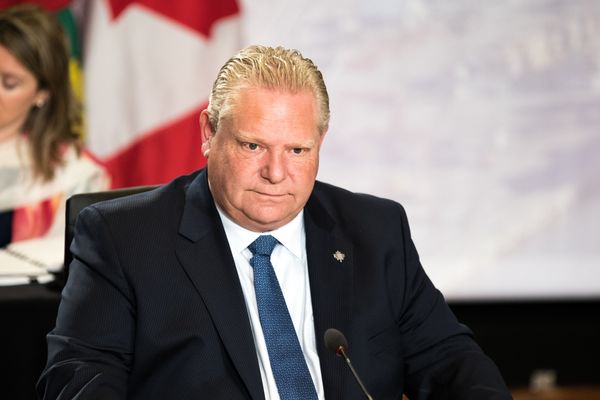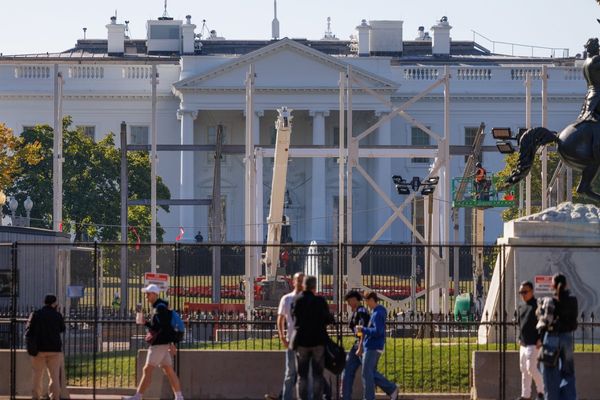WASHINGTON_Alexandria Ocasio-Cortez is young, Latina, and boldly progressive _ in other words, everything the Democratic Party's leadership is not.
The party's activists are ready for that to change.
The 28-year-old socialist's historic victory Tuesday over incumbent Democratic Rep. Joe Crowley is, activists say, a warning to the party's old, white and cautious leadership that Ocasio-Cortez won because she represents the party's new base of voters.
"The future of the Democratic Party is not old, white, conservative, rich men," said Ezra Levin, co-founder of the grassroots progressive group Indivisible, who called Ocasio-Cortez's win the "defining moment" of the election cycle.
"It is the youth, it is communities of color, it is activists, it is the base. And there doesn't seem to be any better wake-up call for the existing sleeping establishment than the folks in their own communities rising up to take power."
Crowley, chairman of the House Democratic Caucus, is 56, and that's youthful compared to other party leaders in Congress. The two Democratic leaders on Capitol Hill_Chuck Schumer in the Senate and Nancy Pelosi in the House_are 67 and 78, respectively.
And even many of the would-be front-runners of the coming Democratic presidential primary qualify as senior statesmen: Elizabeth Warren is 69, Joe Biden is 75, and Bernie Sanders is 76.
Age isn't everything, of course. But all of those leaders are also white and, except in the Sanders and Warren case, known more for a prudent approach to politicking and lawmaking.
Ocasio-Cortez's campaign, meanwhile, was anything but cautious. She campaigned on a muscular liberal agenda of single-payer health care, free college tuition, and abolishing the Immigration and Customs Enforcement agency. She even guaranteed that the federal government would help guarantee a job for every man or woman who wanted one, a plan that would likely require hundreds of billions of dollars in additional spending.
Her rhetoric matched her agenda, promising a more inclusive vision for governance that would unabashedly confront social injustice.
"We took that message to doors that had never been knocked on before," Ocasio-Cortez said Wednesday during an interview with CNN. "We spoke to communities that have typically been, I think, dismissed, and they responded. When people feel they are being spoken directly to, they'll do things like turn out in an off-year midterm primary."
It was exactly what the party's increasingly activist base of voters wanted to hear, say liberal grass-roots leaders.
"She is the perfect intersectional candidate," said Nomiki Konst, an adviser to the Sanders-backed progressive group Our Revolution. "She can talk about racial justice, immigration justice, economic justice. They're all woven together."
Ocasio-Cortez's appeal, Konst added, ran deeper than just her gender or racial identity.
"It's not looking like one of us, she is one of us," the activist said. "She personally feels the pain that working people are feeling across the country."
The Democratic Party has undergone a significant demographic change in recent decades, transforming from a party dominated by white, blue-collar voters to a better-educated, more racially diverse coalition.
A poll conducted by the Pew Research Center in 2016 found that in 1992, 76 percent of the Democratic Party was white compared to 57 percent in 2016. In 1992, 55 percent of the party also had a high school degree or less compared to 32 percent 24 years later.
The change was especially pronounced in Crowley's New York City district, located in the boroughs of Queens and the Bronx. Only one-quarter of the congressman's voting-age populace was white, according to demographic data compiled by Daily Kos Elections.
"The fundamental thing we saw in New York-14 is, are you responding to your changing community?" Levin said. "If you are not, you are going to face a challenger who actually does mirror the district."
Levin said he was skeptical that Democratic leadership, which earlier this year was accused of mounting an underwhelming response to President Donald Trump's withdrawal of DACA protections, would suddenly "flip the switch" and begin responding more forcefully to its new electoral base.
Certainly, some top Democrats _ notably, veteran lawmakers _ said Tuesday's results don't indicate a need for wholesale changes.
"We overthink some of the elections and we look for some kind of subliminal message from the voters, as if they've been meeting en masse and I don't think that happened," said Democratic Rep. Emanuel Cleaver of Missouri. Cleaver has been in Congress since 2005.
"To me, this is very simple: Democrats do not historically come out in primaries. In New York, they've made it even more difficult for them to come out by separating the congressional races from the higher-profile state races, like governor and so forth. So I don't think we should over-read it."







